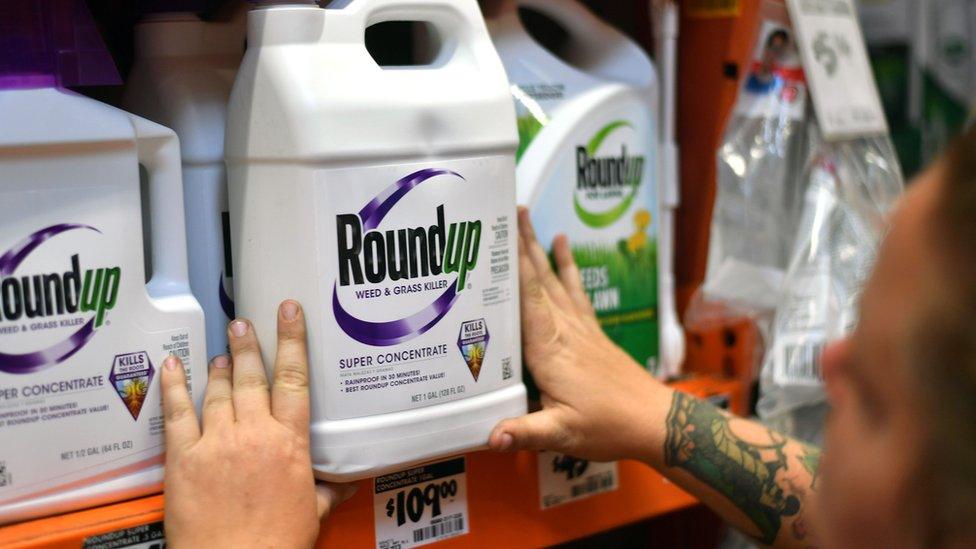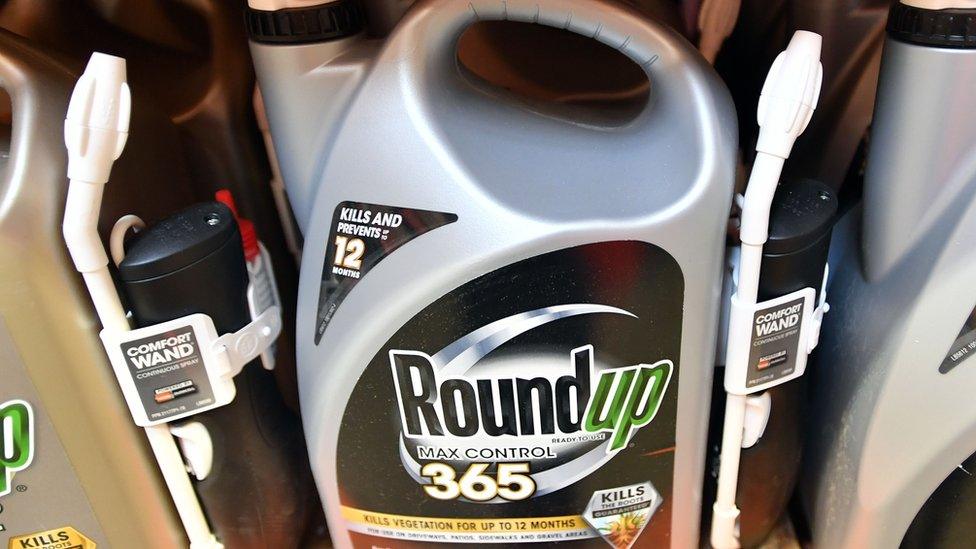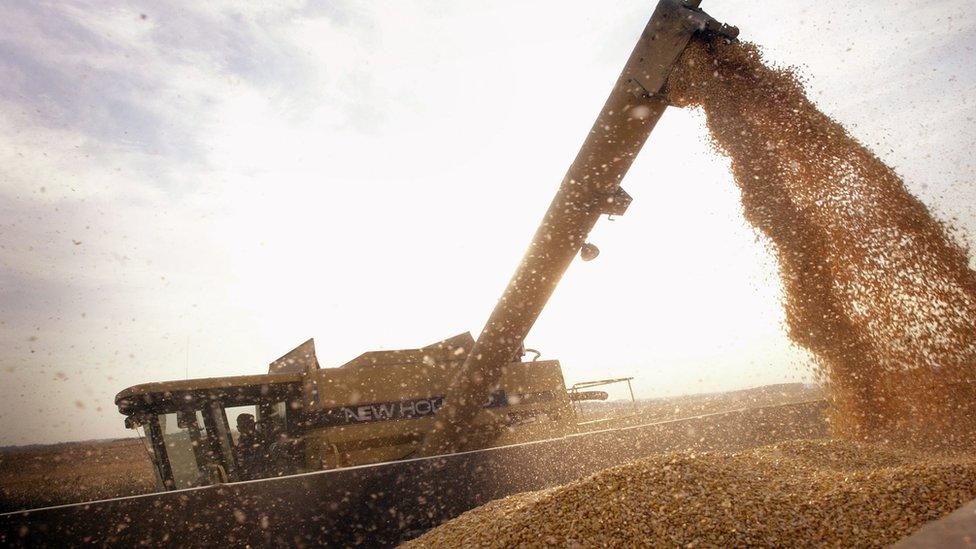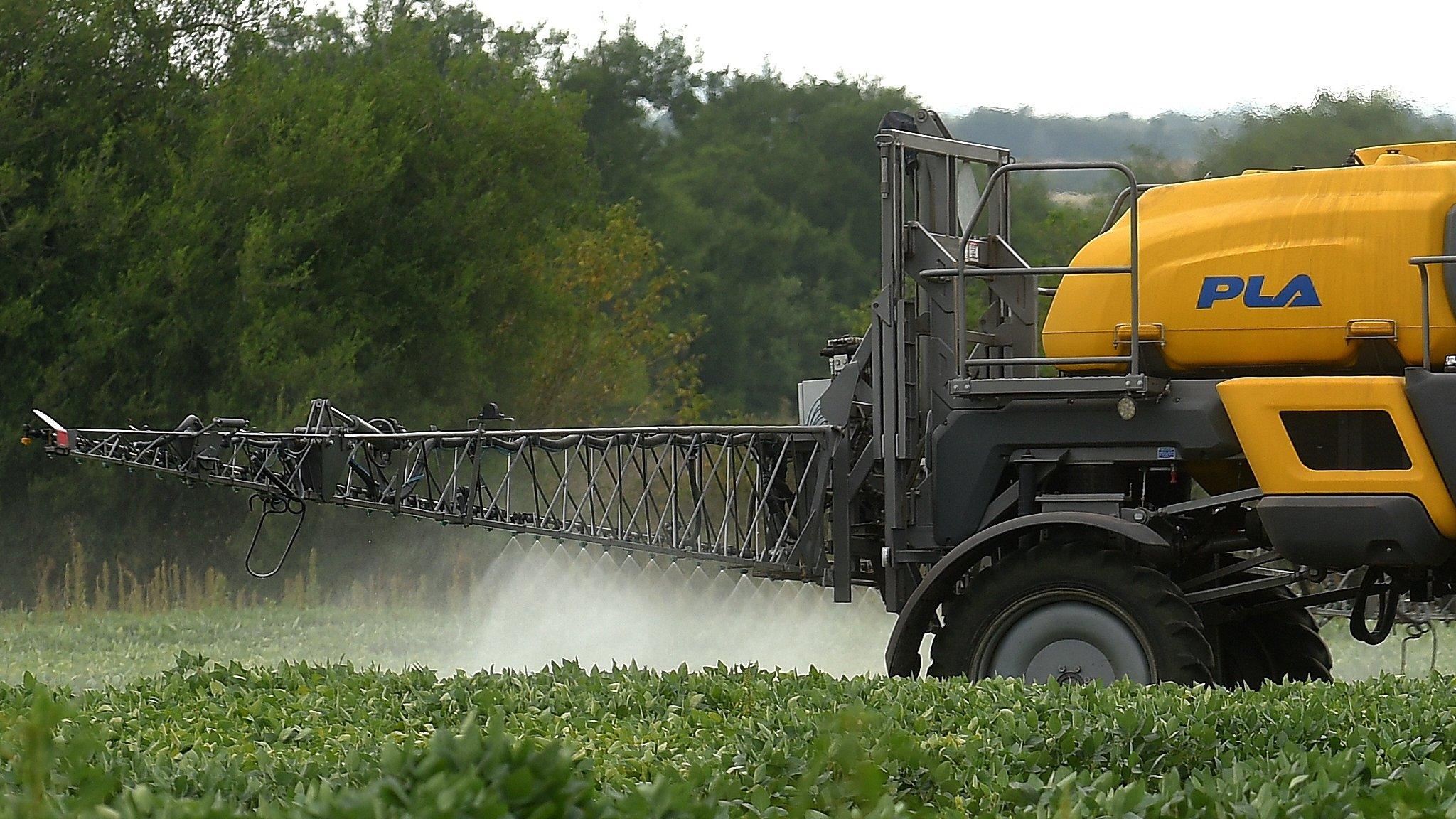Monsanto faces a surge in lawsuits following cancer ruling
- Published

American agro-chemicals company Monsanto is facing a surge in lawsuits that may cost its new owners, Bayer, billions in damages.
Monsanto manufactures glyphosate-based weedkillers which some believe are carcinogenic.
Last month it lost a $289m (£225m) court case that alleged its products Roundup and RangerPro had led to a Californian man's terminal cancer.
Bayer said the number of outstanding cases had risen from 5,200 to 8,000.
The German firm's shares have lost 11% of their value since it lost the case in a California court to groundskeeper Dewayne Johnson, who claimed Monsanto herbicides containing glyphosate, had caused his non-Hodgkins lymphoma.
Bayer shares fell another 1.7% on Thursday.
Chief executive Werner Baumann said that when it bought Monsanto, Bayer "could not foresee the scope of the current lawsuits." The $63bn deal was completed earlier this month.
"In the course of the acquisition, we carried out due diligence as is standard practice when taking over a listed company. In doing so, we of course also considered the legal risks," he said in an interview with Germany's Handelsblatt newspaper.
In a conference call on Thursday, Mr Baumann added: "Our view is that the number is not indicative of the merits of the plaintiffs' cases".

Mr Baumann reiterated Bayer's stance that the court's verdict was not in line with the approach taken by regulators in the US and elsewhere, which allow the use of glyphosate-based weedkillers.
However, scientific opinion is divided.
The U.S. Environmental Protection Agency last September concluded, external that glyphosate is not likely to be carcinogenic to humans.
But the World Health Organization in 2015 classified glyphosate as "probably carcinogenic to humans.", external
Bayer said it will try to have the Californian verdict reversed and, if that fails, it would take the appeal process further.
Mr Bauman said the company would defend all the cases brought against Monsanto rather than settle them out of court.
Liam Condon, head of Bayer's Crop Science division said: "Nothing whatsoever has changed in the regulatory status of the product. There is simply very high demand, and has been for many decades, for glyphosate. It is an invaluable tool for growers."
Chief Financial Officer Wolfgang Nickl said that Bayer's next financial results, due next month, would set aside money for legal defence costs but not for any possible future damages.
- Published11 August 2018

- Published14 September 2016

- Published11 August 2018

- Published11 August 2018
